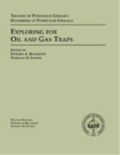Difference between revisions of "Fault seal and migration pathways"
Jump to navigation
Jump to search
Cwhitehurst (talk | contribs) |
Cwhitehurst (talk | contribs) m (added Category:Treatise Handbook 3 using HotCat) |
||
| (One intermediate revision by the same user not shown) | |||
| Line 16: | Line 16: | ||
The sealing behavior of faults controls not only the entrapment of hydrocarbons but also the [[migration pathway]]s into a [[Trap systems: structural, stratigraphic, and fluidic|trap]]. [[Fault seal behavior|Fault seals]] control not only whether a trap retains hydrocarbons but also the volume of hydrocarbons available to migrate into a trap. | The sealing behavior of faults controls not only the entrapment of hydrocarbons but also the [[migration pathway]]s into a [[Trap systems: structural, stratigraphic, and fluidic|trap]]. [[Fault seal behavior|Fault seals]] control not only whether a trap retains hydrocarbons but also the volume of hydrocarbons available to migrate into a trap. | ||
| − | [[How to construct migration pathway maps|Migration pathway maps]] trace hydrocarbon movement between [[Source rock|source]] and trap within a complexly faulted field and between fields. Migration maps that consist solely of dip arrows drawn on maps of the top reservoir can be very misleading. A migration pathway map must use the detailed information available from routine [[Fault seal behavior|fault seal analysis]]. | + | [[How to construct migration pathway maps|Migration pathway maps]] trace hydrocarbon movement between [[Source rock|source]] and trap within a complexly faulted field and between fields. Migration maps that consist solely of [[dip]] arrows drawn on maps of the top reservoir can be very misleading. A migration pathway map must use the detailed information available from routine [[Fault seal behavior|fault seal analysis]]. |
==See also== | ==See also== | ||
| Line 34: | Line 34: | ||
[[Category:Predicting the occurrence of oil and gas traps]] | [[Category:Predicting the occurrence of oil and gas traps]] | ||
[[Category:Evaluating top and fault seal]] | [[Category:Evaluating top and fault seal]] | ||
| + | [[Category:Treatise Handbook 3]] | ||
Latest revision as of 18:12, 29 March 2022
| Exploring for Oil and Gas Traps | |

| |
| Series | Treatise in Petroleum Geology |
|---|---|
| Part | Predicting the occurrence of oil and gas traps |
| Chapter | Evaluating top and fault seal |
| Author | Grant M. Skerlec |
| Link | Web page |
| Store | AAPG Store |
The sealing behavior of faults controls not only the entrapment of hydrocarbons but also the migration pathways into a trap. Fault seals control not only whether a trap retains hydrocarbons but also the volume of hydrocarbons available to migrate into a trap.
Migration pathway maps trace hydrocarbon movement between source and trap within a complexly faulted field and between fields. Migration maps that consist solely of dip arrows drawn on maps of the top reservoir can be very misleading. A migration pathway map must use the detailed information available from routine fault seal analysis.
See also
- How faults control trap fill and migration pathways
- How to construct migration pathway maps
- Effect of seal on hydrocarbon yield estimates
- Migration pathway
- Fault seal-conduit studies
- Fault seal behavior
- Migration